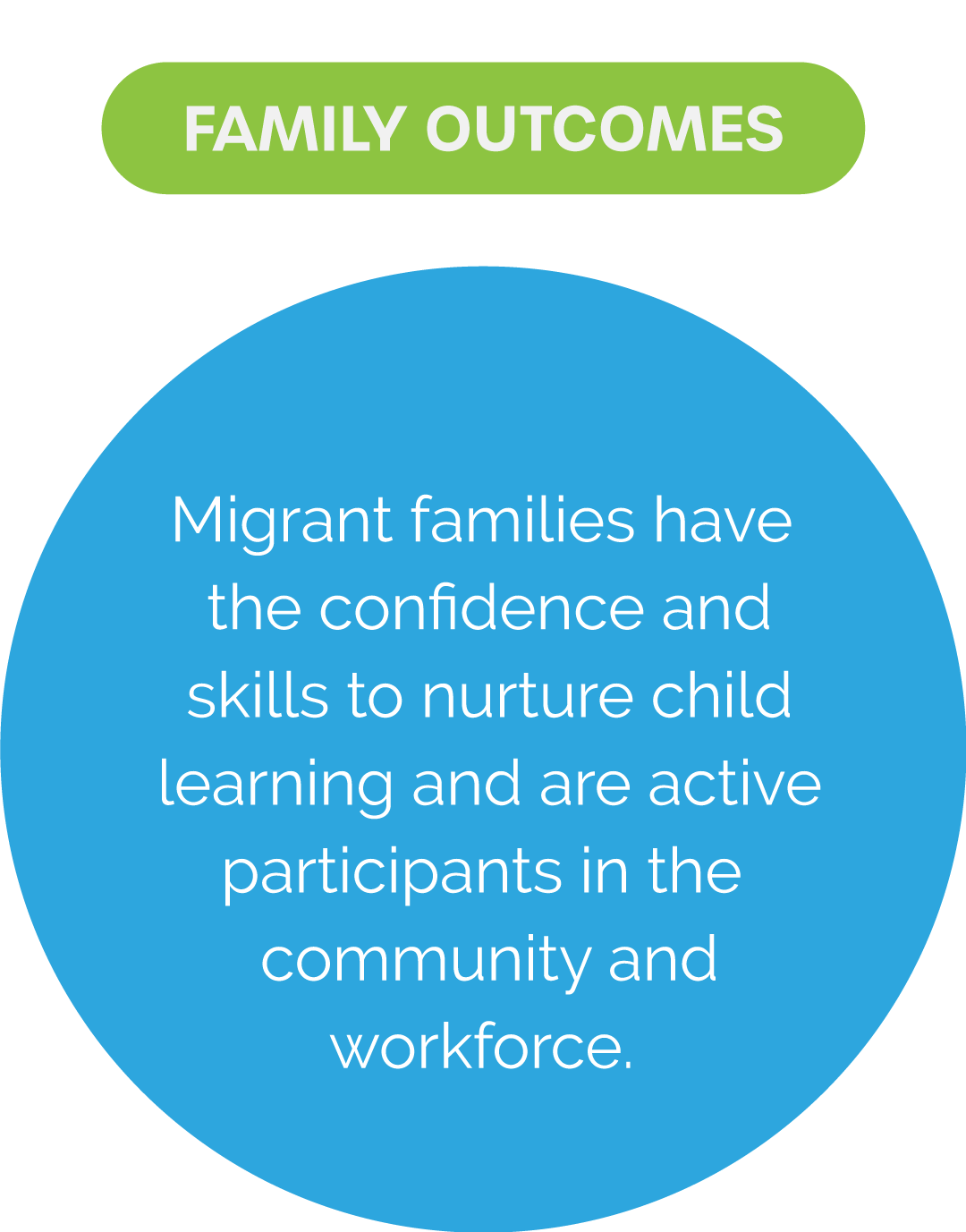Hubs are an ideal place to learn English because language develops informally and incidentally. The English programs that hubs offer allow this organic language development to take place.
English programs at hubs increase confidence in speaking English, provide formal and informal opportunities to learn English, and assist with educational and employment pathways.
Asking questions such as these will help determine the most appropriate pathway to learning English for each individual:
- What is your reason for wanting to learn more English? (Is it for daily communication, to practise their existing skills, for work, to be able to study, to build friendships etc.)
- Have you studied before, in Australia or anywhere else?
- What is your current ability or level of English?
- Do you have pre-school children?

Responding to local needs
This is where a community hub can make all the difference. Across our network, hubs have been linking families into existing English classes, including those run by neighbourhood houses, the Adult Migrant English Program (AMEP) and TAFE colleges. Hubs have also been introducing tailored English language programs to address specific local needs. They vary widely between hubs, as these three examples demonstrate:
In the City of Logan, a group of 13 Burmese women needed support to improve their English. However, they didn’t want to do any more formal learning. Most of the women had two or three children and they felt comfortable in the school-based hub environment. They told the hub leader they wanted to learn practical sewing skills.
Once they were sewing, the hub leader (who was also a trained English teacher) started an informal language group. The women started to enjoy this and found that their confidence with English was improving. They were happy to come in early and extend the time they had to learn English.
They started the day with informal English practice and then continued practising their new language skills during sewing class. The classes were not funded. The hub leader facilitated the English classes and students and volunteers provided free child care.
At Westmead Public School Hub, English classes are organised for about 12–16 parents and grandparents of children attending the school.
The classes are led by volunteers and provide interactive and practical activities with lots of small-group and one-on-one activities. They give participants lots of time to practise their English, seek clarification and increase their confidence to speak to and in front of other people. Participants also get help with their pronunciation and understanding Australian accents.
The volunteers are self-sufficient and highly organised. They run the activities with support from the hub leader, who books rooms and organises equipment.
The classes are not funded and there is no child care provided. A similar model runs in Victoria, with the local AMEP provider (AMES) supplying a volunteer tutor, and the hub leader and parents share child-minding duties.
A number of hubs in the City of Hume run a 20-week Mother Child English Program in partnership with a registered training provider (RTO).
The curriculum focuses on English within an early childhood development context. The program allows mothers to come in and settle their children into child care in a nearby room, while they have formal English classes that focus on practical, everyday English about child development, pre-school learning, raising healthy children and raising children in a multicultural society. The children take part in fun child care that is pre-accredited.
After the formal session, the children and parents come together in a playgroup, which has play activities themed to the classes, giving parents the chance to practise what they have learned.
The model requires a partnership with an RTO and is suitable for people with various levels of English proficiency. It is funded with AMEP funds plus funds from the Foundation Skills stream. Funding to cover child care has been sourced from the philanthropic sector.
Appying for grants to start your program
Community Hubs Australia funds conversational English classes for adults in hubs. This funding allows hubs to have a qualified, paid English-language provider to teach classes.
Find out more